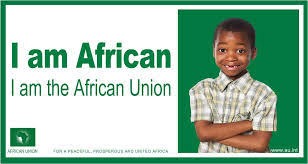
Henry Rosovsky
About Us
We are a multi-disciplinary centre and research is at the heart of all our programs. Our research programs focus on: regional integration, sustainable development and Africa’s economy, regional security & politics, justice and human rights, rule of law and governance issues. We collaborate with several research affiliates and gratefully acknowledge support from the AU and in particular the University of The Gambia and the University of Makeni in Sierra Leone.
Our research and consultancy services are based on lessons learned from nearly 30 years of development, human rights, and security work. We understand that failure to base policy and programs on sound political, scientific, economic and social analysis can have disastrous consequences for whole communities. Growing inequalities, social deprivation, discrimination, hunger, and disease are all caused by poor decision making and neglecting to implement evidence-based policy. We are renowned for our innovative and in-depth approach to research.
Our research tackles the complex and persistent challenges of Africa’s injustices and vexing poverty. We take a multidisciplinary approach and work with an international network of partners to develop research which we actively seek to see applied in development policy and practice.
By drawing from academic disciplines, knowledge and skills across the social sciences and beyond, we tackle many of Africa’s most critical and sensitive contemporary challenges, from violence, peace, human rights, corruption, poverty and other forms of social injustices. facing society. We provide objective information on military, geopolitical and geo-political and economic developments that has an impact in Africa’s achieving the vision of Agenda 2063. Our reputation for working holistically and unfettered by disciplinary boundaries has already attracted world-leading scholars to visit and establish collaborations.
Informing the current public policy debate and topics on the public agenda
AU Watch is aware that failure to base policy and programs on sound political, scientific, economic and social analysis can have disastrous consequences for whole communities. Growing inequalities, social deprivation, discrimination, hunger and disease are all caused by poor decision making and neglecting to implement evidence based policy. We are renowned for our innovative and in-depth approach to research, our high quality teaching and as a regional knowledge hub that transforms peoples’ lives through our groundbreaking work. weengage the AU, its Recs and other bodies, governments, the private sector, civil society and its dynamic membership in open debate and confidential discussions on the most significant developments on AU affairs. Our organizing power will attract African leaders and the best analysts in their respective fields from across the Africa and beyond.
Published Research
AU Watch Human Security Program
Human security is a dynamic and practical policy framework for addressing widespread and cross-cutting threats facing Governments and people. Recognizing that threats to human security vary considerably across and within countries, and at different points in time, the application of human security calls for an assessment of human insecurities that is people-centred, comprehensive, context-specific and preventive. Such an approach helps focus attention on current and emerging threats to the security and well-being of individuals and communities.
Why is AU Watch Concerned with Human Security Now?
As argued by the Commission on Human Security2 (CHS), the need for a new paradigm of security is associated with two sets of dynamics:
A recent Research Report by AU Watch on human security suggests that poverty and inequality, social injustice, governance issues, human rights violations, corruption, terrorism, conflicts, human trafficking, climate change and water, in that order, are the current emergent threats to state and individual freedoms.in Africa.
AU Watch is organizing a three-day seminar in Sirte, Libya on in November 2018 on The AU and Human Security in Africa’ and is calling for papers and experts comments and contributions. A full call for papers will be announced in January 2018. Topics shall include:
Question to readers: what issues do you feel should receive greater attention by human security advocates in the coming decade, if Agenda 2063 is to be realized?
To learn more about AU Watch Human Security program please Click Here. But get connected, Have your say. Discuss what Africa should look like in 2063. Share a multimedia and become a participant by logging onwww.agenda2063.au-watch.org
Our Research Groups
Research Leadership spotlight
Hon. Bahame Tom MukiryaNyanduga, Chairperson of AU Watch
Hon. Bahame Tom, Mukirya Nyanduga is the Chairperson of AU Watch. He is the UN Independent Expert on the Human Rights Situation in Somalia, since May 2014. He was the Chairperson for the Commission for Human Rights and Good Governance of the United Republic of Tanzania- appointed in January 2015. Hon. BTM Nyanduga was also the Chairperson of the African Commission on Human and Peoples’ Rights. He is one of the leading human rights defenders in the continent and has been for over forty years.
Dr Feyi Ogunade, Chief Executive Officer
Dr Feyi Ogunade was previously a Senior Legal Advisor at the African Union leading work on the promotion and protection of human rights in Africa. In his 30 years as a (motivational) speaker, journalist, human rights activist, political commentator, international lawyer, university lecturer, fundraiser, and consultant, Feyi has taken CSOs of all sizes to new heights – and earned an international reputation for excellence in the process. Feyi serves on several company boards and advisory committees for non-profit organizations, and is actively involved in numerous development initiatives across Africa.
Stay informed
AU Watch Policy Currents
Stay on top of the latest AU Watch research highlights, news, analysis, and commentary with the official AU Watch email newsletter
Assist Us To Make a Difference

Support Our Work

Five ways you can make a difference:
Want To Take Part in Our Schools Projects?